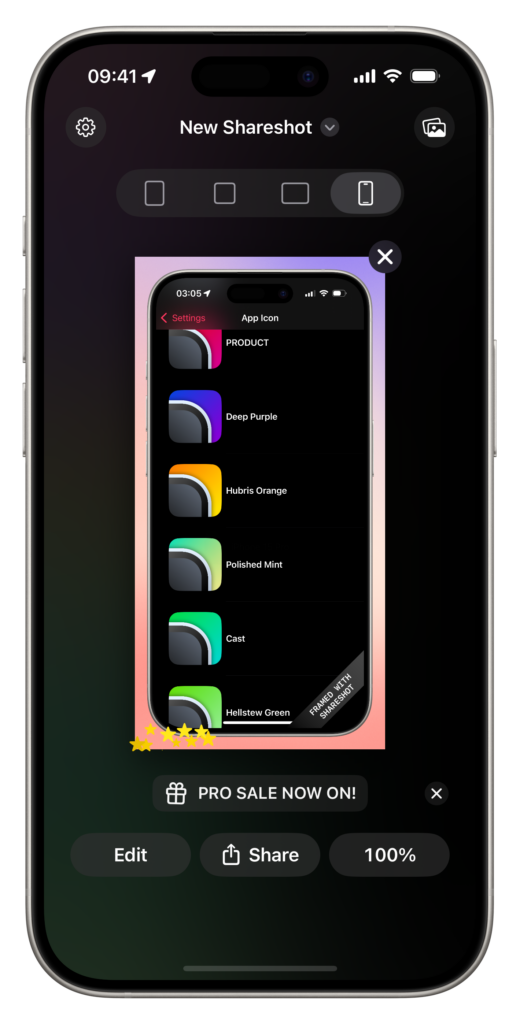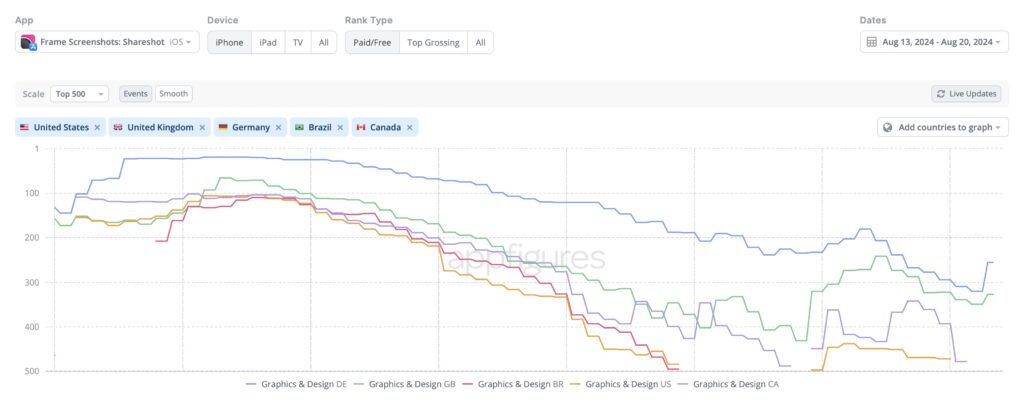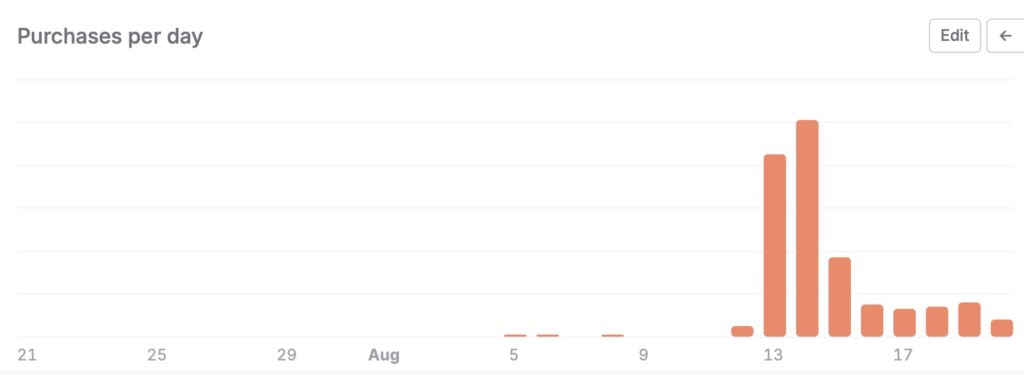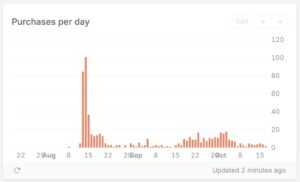On August 12th we launched our app Shareshot which makes it easy to add frames and backgrounds to screenshots or other images.
Finally. Our fourth released indie app actually does some numbers.
The launch went way beyond our expectations. We have had over 2,500 installs in just this first week and well over 1,600 screenshot images have been exported or shared (our metrics were not reporting this initially). We have been really touched by the level of support from the development community and the wider pool of Beta testers, of which there were over 600.


We were lucky to be featured in both 9to5Mac and MacStories.
I am sure the launch went so well in part because of this strategy. We ran a wide open public beta from just before WWDC in June, and ran a pre-order in the App Store in the week before launch. We had something like 400 pre-orders by launch day for a free app! This definitely helped with launch week App Store and search rankings as well as word-of-mouth and general social media vibe — we had things to post about repeatedly for the benefit of all.
As a result of this we were also able to pre-promote the Introductory Offer Subscription that was available during launch week with circa 35% discount for the first year’s worth of subscription.
In fact, we put a little “PRO SALE NOW ON” button in the UI that automatically shows only when there is a discount available in the App Store (using StoreKit 2 APIs via RevenueCat) so it will be disappearing shortly. Tapping it would bring up the paywall showing the promotional offer — a voluntary action before people even hit the paywall. This was responsible for 30% of our subscription sales in the first week.

Downloads and Purchases
Downloads are still healthy at around 50 per day, far more than any of our previous apps, and this is despite not having great chart or ASO rankings yet. The search rankings are improving slowly it seems.
Our chart rankings were pretty good – top 100, top 50 in some countries for a short time. This was likely due to the weighting Apple introduced for new apps but also the initial launch’s wave of attention leading to high downloads. Now we are rapidly tanking towards 500+ even with ratings and reviews now coming in. Currently best position is #92 in Brunei Darussalam so there’s that.

In terms of ratings and reviews, we’ve only received 20 ratings and 6 reviews so far. Partly this is because our review prompting code deliberately will not kick in until at least 3 days after the first run of the app, and we can see it is prompting people now so hopefully this improves so that our search ranking will increase.
Interestingly, throughout the week the number of purchases as a % of installs has remained really quite static, so this “Bezos-chart” without numbers on it (we’re definitely not retiring any time soon, but we are not complaining!) shows the shape of the launch from August 13th in terms of downloads and purchases. The last day is incomplete, so it’s lower than it likely will end up. What remains to be seen is whether this level holds when the launch week sale ends!

We’ve generated enough revenue that for August at least, we have to (gladly) pay TelemetryDeck and RevenueCat for their services! We also had to increase our RCKit app subscription to keep receiving notifications + stats from RevenueCat in their iOS app. A nice problem to have!
Vision or mirage?
The jury’s still out! We put a lot of work into the Vision Pro version of the app and it remains my favourite version of the UI though I need to improve it quite a bit as I learn more about the ergonomics of using Vision Pro. It does look great when you show colourful content on a Vision Pro. However… so far we have only 19 users (and I’m one) and 4 of them are paid users! We were not expecting any significant sales on this platform initially, but hopefully being there early will lead to better things.
A huge thank you
We really are so grateful to everybody who has supported us making and shipping this app and for all the enthusiasm, lovely comments and feedback we’ve received.
We feel we have a really solid foundation to build upon now with Shareshot, and we have some great features that we can’t wait to start building for you!








